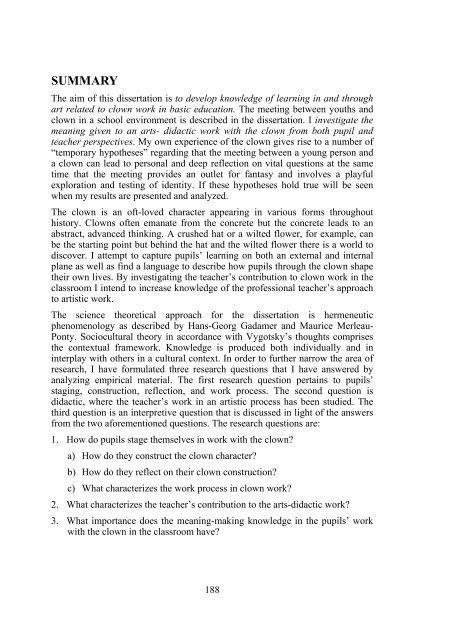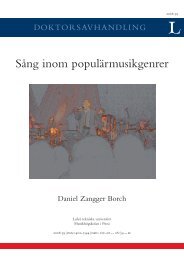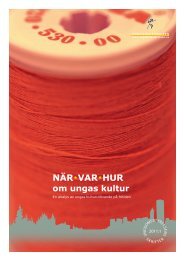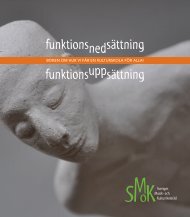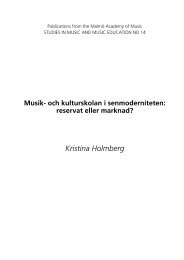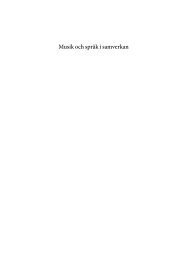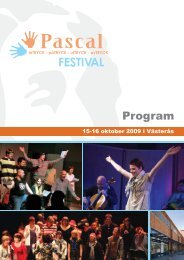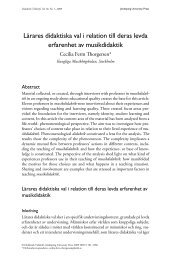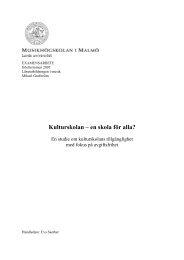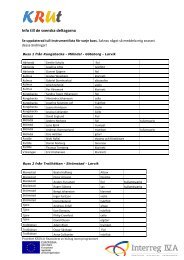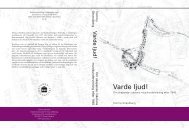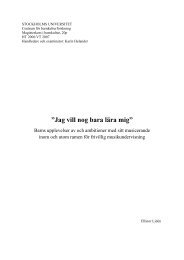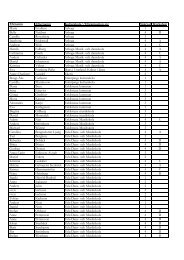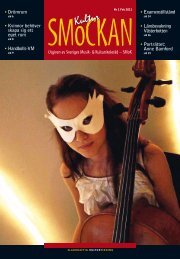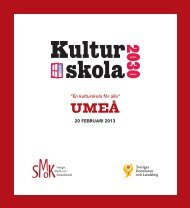KARNEVAL I KLASSRUM âKUNSKAP PÃ HJUL
KARNEVAL I KLASSRUM âKUNSKAP PÃ HJUL
KARNEVAL I KLASSRUM âKUNSKAP PÃ HJUL
Create successful ePaper yourself
Turn your PDF publications into a flip-book with our unique Google optimized e-Paper software.
SUMMARY<br />
The aim of this dissertation is to develop knowledge of learning in and through<br />
art related to clown work in basic education. The meeting between youths and<br />
clown in a school environment is described in the dissertation. I investigate the<br />
meaning given to an arts- didactic work with the clown from both pupil and<br />
teacher perspectives. My own experience of the clown gives rise to a number of<br />
“temporary hypotheses” regarding that the meeting between a young person and<br />
a clown can lead to personal and deep reflection on vital questions at the same<br />
time that the meeting provides an outlet for fantasy and involves a playful<br />
exploration and testing of identity. If these hypotheses hold true will be seen<br />
when my results are presented and analyzed.<br />
The clown is an oft-loved character appearing in various forms throughout<br />
history. Clowns often emanate from the concrete but the concrete leads to an<br />
abstract, advanced thinking. A crushed hat or a wilted flower, for example, can<br />
be the starting point but behind the hat and the wilted flower there is a world to<br />
discover. I attempt to capture pupils’ learning on both an external and internal<br />
plane as well as find a language to describe how pupils through the clown shape<br />
their own lives. By investigating the teacher’s contribution to clown work in the<br />
classroom I intend to increase knowledge of the professional teacher’s approach<br />
to artistic work.<br />
The science theoretical approach for the dissertation is hermeneutic<br />
phenomenology as described by Hans-Georg Gadamer and Maurice Merleau-<br />
Ponty. Sociocultural theory in accordance with Vygotsky’s thoughts comprises<br />
the contextual framework. Knowledge is produced both individually and in<br />
interplay with others in a cultural context. In order to further narrow the area of<br />
research, I have formulated three research questions that I have answered by<br />
analyzing empirical material. The first research question pertains to pupils’<br />
staging, construction, reflection, and work process. The second question is<br />
didactic, where the teacher’s work in an artistic process has been studied. The<br />
third question is an interpretive question that is discussed in light of the answers<br />
from the two aforementioned questions. The research questions are:<br />
1. How do pupils stage themselves in work with the clown?<br />
a) How do they construct the clown character?<br />
b) How do they reflect on their clown construction?<br />
c) What characterizes the work process in clown work?<br />
2. What characterizes the teacher’s contribution to the arts-didactic work?<br />
3. What importance does the meaning-making knowledge in the pupils’ work<br />
with the clown in the classroom have?<br />
188


